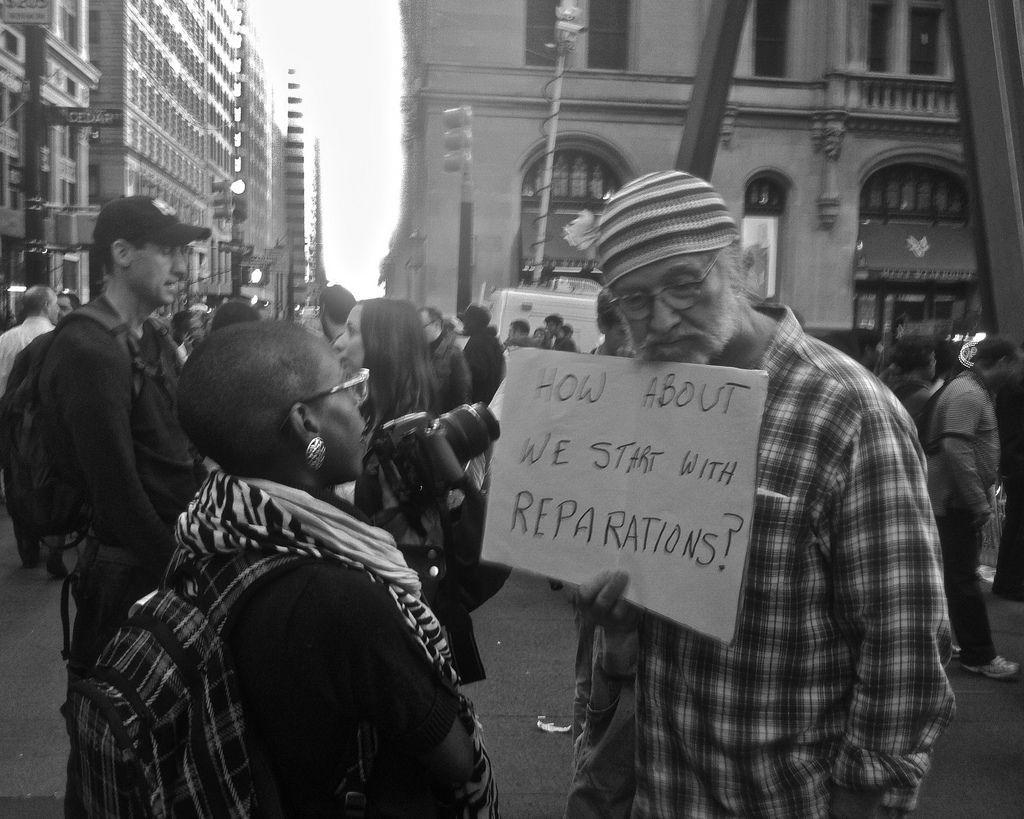If black Americans finally received some reparations for slavery, then maybe they would not be considered “thugs.”
According to The Nation, one of the country’s oldest weekly magazines, it will take the average black American family 228 years to accumulate the same amount of wealth as a white family.
“It took 400 years of slavery, segregation and institutionalized discrimination in the labor and housing markets to build the wealth gap that we see today,” The Nation contributor Joshua Holland said. “For example, by the time the Fair Housing Act made discrimination in housing illegal in 1968, people of color had missed out on decades of robust growth in the housing markets.”
I previously wrote a column addressing how black Americans need to keep money within their community to ensure economic growth, and I still believe this. However, there are other factors to the large racial wealth gap.
Black people were not the only group wronged by the United States, but unlike many other marginalized groups, they never received any forms of compensation. Japanese Americans received over a billion dollars for being placed in internment camps during World War II. Native Americans also received several billion in reparations for the years of injustices they faced.
White Americans were not forced off their land, put in camps or shackled and forced to perform centuries of hard labor for no pay. They built a lot of their wealth off the backs of others, so they don’t need reparations.
The restitution given to these different communities allowed them to build and grow in America. Yet, black Americans have been forced to make ends meet and create wealth from absolutely nothing.
There has been a long-lasting discussion of reparations for black people, but nothing ever comes of it. It’s baffling there has to be an in-depth conversation about it. Black people built this country and were compensated by being raped, beat and belittled.
The Western Kentucky University Student Government voted in favor of allowing their black counterparts to attend the university tuition-free as a form of restitution for slavery. Despite the students’ decision, the administration immediately shot down the resolution.
“We appreciate the Student Government Association’s interest in these issues, but it’s important to clarify that their resolution is not an official position taken by the university,” WKU President Gary Ransdell said in response to the vote. “I have read the SGA resolution, and I understand that their intent was to spark a conversation, but the university will not adopt any such policy.”
Tuition-free higher education is apparently too much to ask as a simple compensation for years of enslavement. However, despite the president of Western Kentucky University shooting down his students’ proposal, the Georgetown University administration came up with an idea of their own. President John J. DeGioia issued a public apology admitting to the university’s benefit in the sale of 272 slaves, and offered descendants of slaves preferential status in admissions.
This is admirable, but Georgetown cannot admit every black student in America. It’ll help some people, but it won’t serve a great benefit to the entire black community.
President Richard Nixon implemented the war on drugs as a political tool to combat black Americans. Such programs lead me to believe the ultimate goal may actually be to keep the black community marginalized. Many blacks resort to selling drugs as a way to make ends meet or expand in life, whereas other communities can rely on generational wealth.
Black Americans are imprisoned for trying to survive in a country that once viewed them as property. One of several resolutions for the lack of reparations could be to exonerate black people of drug crimes. However, the prisons would then have more empty jail cells which would be detrimental to the billion-dollar prison industry.
So the question becomes, does America value the profit of businesses more than the well-being of its people? Black people will preserve no matter the answer. However, I’ll still be waiting on our 40 acres and a mule.
Clarke Perkins is a 21-year-old political science senior from New Orleans, Louisiana.
Opinion: Black Americans deserve reparations for past injustices
August 21, 2017





